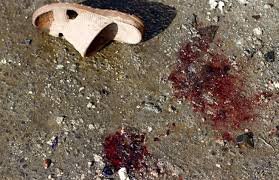
’As the Shelling Continues, Our Only Hope is to Survive the Fighting’- The Guardian
The humanitarian catastrophe created by seven months of war in my homeland of Yemen shows no sign of abating. The official death toll has exceeded 4,500 since March and 80% of the country’s 25 million people are now in need of humanitarian assistance. To make matters worse, rumours are constantly flying around of a battle for control of Sana’a.
The situation in the capital, which has endured months of near-continuous war, is very worrying and recent weeks have been the worst period so far. We have had to move to four different apartments to protect my family from the fighting. Our original home was located in Jabal Sabir, but in August hundreds of civilians were killed in the neighbourhood so we had to move. Each time we settle in a new apartment, we are forced to move again.
We now live in a relatively safe area of the capital - for the moment at least. But we’ve been unable to reach the original International Medical Corps [IMC] office since early summer because shelling continues there. Although we have relocated to a temporary office in a safer area, I have been working from home for two weeks because our security staff say it’s too dangerous to venture to the office.
As I’m a doctor - a GP - I volunteer at local hospitals whenever I hear bombings. Last July, for example, I ran to Al-Jomhouria hospital after I heard a big explosion. Inside, I saw hundreds of people with horrific injuries. I am not a surgeon, so I could only help provide first aid to some of the injured. I also made sure that we, as the IMC, provide essential medicines and medical equipment to the hospital. The two things preventing hospitals in Yemen from total collapse are the dedication of first responders like the IMC and our support in terms of medical provision.
Today, I work with the IMC as a nutrition officer. Yemen has a serious problem with malnutrition, which began long before the current fighting broke out. I should be managing our training programmes for the ministry of health and in the community, but the war makes that work almost impossible. Instead, we must provide emergency help in whatever way we can.
The security situation changes by the minute: sometimes it is quiet and we seize the opportunity to go shopping, but then we suddenly hear exchanges of fire. If we are at home, we all go down to take shelter in the underground garage of our six-floor building. It’s hard there because you’re stuck - sometimes for hours - in the dark with dozens of other families, including children and grandparents. Since the war began, we’ve had to seek refuge in the garage six times. Each time my son, Omar, becomes terrified and constantly wants me or my wife to hug him.
Electricity lines are often cut, running water is a rarity, and stores and markets only stay open if conditions are calm. I am sad and I worry about the future. It’s tragic to see my city - once crowded with markets and shoppers - all but empty. Now it is the underground garages that are crowded with people; people whose only hope is to survive the fighting. I hope things will soon return to normal.
